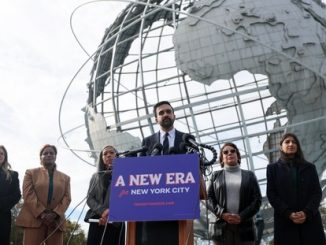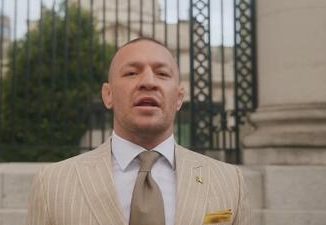
| Published July 10, 2025
In a stunning political upset, self-proclaimed democratic socialist Zohran Mamdani has been elected mayor of New York City in 2025, marking a sharp left turn in the city’s leadership. But as celebrations unfold among progressives, critics are revisiting one of Mamdani’s most incendiary moments: a 2020 call to “seize” luxury homes during the COVID-19 pandemic to house the homeless.
At the time, Mamdani’s tweet demanding the government confiscate vacant properties owned by the rich sparked outrage. Now, with real power in his hands, that past rhetoric is triggering new fears—especially among property owners, investors, and moderate New Yorkers who worry that ideology may now shape policy.
As New York enters a new political era, Mamdani’s radical past statements are no longer theoretical. They’re a preview of what could soon become reality.
The Controversy: “Seize Luxury Homes” Comments
🗣️ What He Actually Said
📌 March 2020 – The Tweet That Sparked It All
At the height of the COVID-19 pandemic, when hospitals were overflowing and thousands of New Yorkers faced homelessness, Zohran Mamdani took to Twitter and posted the following:
“The oligarchs have thousands of luxury condos, co-ops, and homes sitting empty while New Yorkers die on the streets.
Seize these properties. House the homeless. Enact a #HomesGuarantee.”
— Zohran Mamdani, March 2020
This post wasn’t vague or subtle. The word “seize” was deliberate—evoking the idea of government forcefully taking private property. It quickly drew backlash from critics who saw it as a call for property confiscation akin to communist regimes.
🏘️ His Broader Housing Vision
Mamdani didn’t stop there. In a video for the Gravel Institute, a progressive media group, he laid out a deeper ideological vision. In that video, he called for:
-
The “de-commodification of housing” — the idea that housing should no longer be a private commodity, but a public right.
-
Community land trusts and public ownership models.
-
A push to buy up private housing stock using public funds and repurpose it for collective use.
In other words, the tweet wasn’t just a moment of pandemic-driven passion—it was in line with a much larger and systematic approach to restructure housing under government and communal control.
🔴 At a 2021 Socialist Youth Event
During a Young Democratic Socialists of America conference in 2021, Mamdani went further. He declared:
“Yes, seizing the means of production must remain our end goal.”
— Zohran Mamdani, 2021
This statement, a direct echo of Marxist philosophy, was aimed at energizing young socialists but has since become a flashpoint for critics. While some saw it as metaphorical, many viewed it as confirmation of Mamdani’s long-term intent to radically alter economic systems.
Responses & Reactions
-
Critics portray him as a radical outlier threatening property rights and capitalism—with some refugees calling his rhetoric reminiscent of authoritarian regimes .
-
Republican voices warn that his approach could wreck NYC, citing the rise of “dangerous” communism
-
Real-estate sector fears a mass exodus of wealthy residents and business slowdown.
-
Supporters, including academics and progressives, argue his bold agenda tackles affordability with targeted reforms—like rent freezes, tax fairness, and public services.
🏙️ What This Means for NYC
The election of Zohran Mamdani as New York City’s mayor in 2025 isn’t just a routine change in leadership—it marks a seismic political shift with far-reaching implications for the city’s future. His past statements about seizing luxury properties and his commitment to socialist ideals are now no longer campaign talking points—they’re potentially governing principles.
1. 🏠 Real Estate and Housing Policy: A City on Edge
New York’s real estate sector—valued in the trillions—is bracing for impact. With Mamdani’s long-standing criticism of landlords and his call for the “de-commodification of housing,” developers and investors fear:
-
New rent freezes or aggressive rent control measures.
-
Expansion of community land trusts that remove properties from private markets.
-
Increased property taxes on vacant luxury homes.
-
Possible legal efforts to forcibly acquire or redistribute unused private property under emergency or public use justifications.
Already, wealthy homeowners and corporations are reportedly exploring exit strategies or asset relocation. Some analysts warn of a “capital flight” similar to what was seen in San Francisco during its progressive policy wave.
2. 💼 Business Climate: Risk of a Corporate Exodus
Mamdani’s win sends a strong message to business leaders: New York is no longer catering to big finance or tech as it once did. His vision includes:
-
Higher corporate taxes to fund housing and social programs.
-
Increased labor protections and potential city-wide minimum wage hikes.
-
Support for unionization and worker cooperatives over traditional business models.
Major financial institutions and venture capital firms have warned that Mamdani’s policies could stifle innovation and drive employers to business-friendly states like Florida or Texas.
3. 🧑🤝🧑 Class Politics and Social Tension
By framing the housing crisis as a symptom of capitalist greed, Mamdani has reignited class warfare rhetoric in America’s largest city. His language—targeting “oligarchs” and “hoarders of luxury condos”—has inflamed tensions between:
-
Working-class residents who feel abandoned by the system.
-
Middle-class property owners now anxious about their home values and taxes.
-
Upper-class residents who feel vilified and targeted for redistribution.
Expect growing polarization, especially in boroughs like Manhattan and parts of Brooklyn, where class divides are sharpest.
4. 🗳️ Political Fallout: National Implications
Mamdani’s victory could inspire a wave of democratic socialist candidates across major cities and blue states. He’s already being hailed as a possible future national figure by the progressive left.
But nationally, his rise is also becoming a cautionary tale for Republicans and moderates, who may use his win to galvanize support against socialist policies in 2026 congressional races.
This could also deepen the urban–rural divide in American politics, as New York becomes a symbol of radical experimentation.
5. 📜 Legal and Constitutional Questions
If Mamdani pursues aggressive housing seizures or redistributive laws, he may run into legal challenges—especially concerning the Fifth Amendment, which protects against government takings without just compensation.
Civil liberty groups, property rights advocates, and conservative think tanks are already preparing for legal battles, warning that property confiscation or forced housing policies could violate both state and federal law.
6. 💬 Public Safety and Urban Decay Fears
Some critics warn that if Mamdani’s policies de-incentivize investment and reduce private ownership, the city could see a decline in public order and safety—echoing the deterioration NYC faced in the 1970s.
Without sufficient revenue from property taxes and business investment, city services could become underfunded. If paired with permissive law enforcement reforms, this could accelerate urban decay in some neighborhoods.
 Resulting Effects:
Resulting Effects:
Zohran Mamdani’s victory—and the radical housing views he brings into office—has already set off a chain reaction across New York City’s economic, social, and political landscape. What once seemed like theoretical “social justice” slogans are now being treated as policy threats by many, triggering rapid shifts in behavior from individuals and institutions alike.
📉 1. Investor Panic and Property Sell-Offs
In the weeks following Mamdani’s election, high-end real estate listings have spiked across Manhattan and parts of Brooklyn. Wealthy homeowners—fearful of seizure policies, wealth taxes, or vacant home penalties—are:
-
Selling off properties ahead of possible regulation.
-
Transferring ownership to offshore entities or trusts.
-
Relocating primary residences to states like Florida and Texas.
Realtors report a rise in cash offers from out-of-state buyers, signaling a market in panic mode.
🏢 2. Real Estate Development Freezes
Major developers have paused or canceled planned luxury housing projects. Several building permits are reportedly on hold, and venture capital in real estate tech has dried up.
One executive told Fox Business:
“You don’t build towers in a city where the mayor wants to seize them.”
This could mean fewer jobs, stalled construction, and a ripple effect across the city’s building trades, architecture firms, and local vendors.
📦 3. Business Retrenchment and Corporate Exit
Corporations that once treated NYC as a global hub are reassessing. Already, companies like JPMorgan Chase and Goldman Sachs have reaffirmed long-term investments elsewhere, citing “regulatory uncertainty.”
Small business owners—many of whom rely on property income—are scaling back hiring and freezing expansion. The result? A weaker job market, particularly in service and tech sectors.
⚖️ 4. Legal Challenges Incoming
Property rights organizations and civil liberties groups are preparing lawsuits to block any executive or legislative attempts to:
-
Mandate housing redistribution
-
Force sales or reallocation of vacant homes
-
Impose excessive taxation on unused property
Mamdani’s past statements are now being used as evidence of intent in early legal filings. Expect drawn-out court battles over eminent domain, the Fifth Amendment, and due process.
🧍♂️ 5. Middle-Class Anxiety and Pushback
It’s not just billionaires feeling uneasy. Middle-class homeowners, especially those who’ve worked their way into property ownership, now fear they’ll be caught in Mamdani’s ideological crossfire.
-
Many are exploring out-of-state moves.
-
Others are forming grassroots opposition groups, with some moderates calling for city charter amendments to limit executive power.
The sense of “class warfare” has made civil discourse more volatile.
🧑⚖️ 6. Political Realignment
Local Democrats are splintering between traditional liberals and far-left progressives. Meanwhile, Republicans in the city—long in the minority—are seeing a surge in registration and fundraising, hoping to capitalize on voter disillusionment.
Former Mayor Eric Adams has reportedly held talks with moderate coalitions about forming a centrist urban movement to push back on socialist overreach.
🗞️ 7. National Spotlight
Mamdani has become a media lightning rod, featured on networks ranging from MSNBC to Fox News. For some on the left, he’s a trailblazer delivering justice. For others, he’s the poster child for creeping communism in American cities.
Expect his policies and persona to become a campaign issue in 2026 House races and possibly the 2028 presidential election.
 Bottom Line:
Bottom Line:
Zohran Mamdani’s election as mayor of New York City is a wake-up call—not just for the city, but for the nation. His open calls to “seize” private property, embrace socialism, and dismantle the housing market aren’t just reckless—they’re dangerous. What was once dismissed as fringe ideology is now shaping public policy in America’s largest city.
This is no longer about affordable housing—it’s about government overreach, property confiscation, and an aggressive push to replace capitalism with state control. The early signs are clear: investors are fleeing, the middle class is nervous, and the city’s economic engine is stalling.
New York, once the symbol of American opportunity, is now flirting with the same socialist policies that drove economies into ruin elsewhere. If voters across the country don’t pay attention, Mamdani’s radical agenda may be the blueprint for a nationwide decline.
SOURCES: THE GATEWAY PUNDIT – During the Pandemic, NYC Communist Zohran Mamdani Called to ‘Seize’ the Homes of the Rich for the Homeless
FOX NEWS – Socialist NYC mayoral candidate Mamdani once called to ‘seize’ luxury homes to house homeless during COVID





Be the first to comment